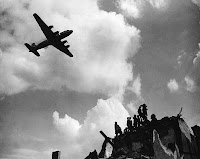- one hundred years ago, about 1910 A.D.
- Teddy Roosevelt
- Albert Einstein
- two hundred years ago, about 1810 A.D.
- Archibald Henderson, commandant of the USMC
- Seminole wars in Florida
- Napoleon Bonaparte
- Thomas Jefferson
- John Quincy Adams
- James Madison
- five hundred years ago, about 1510 A.D.
- The reformation and Martin Luther
- Columbus and other explorers
- St. Thomas More and King Henry VIII
- eleven hundred years ago, about 910 A.D.
- the first Parliament, in Iceland
- Vikings raiding the coasts of Europe
- King Alfred the Great in England
We discussed how even today we follow the footsteps of Einstein, Jefferson, Thomas More and Columbus, and we still view the results of actions of Vikings, like the blonde-haired blue-eyed families that live in Sicily to this day!
Similarly, Amos was a prophet following the footsteps of Elijah, living in David's kingdom, calling Israel to live up to the Law of Moses, and springing from the family roots of Father Abraham.
Image: Albert Einstein, 1912









 )
)











 We have an informal Bible study at 7:00 AM, every Thursday for the men of the
We have an informal Bible study at 7:00 AM, every Thursday for the men of the 


